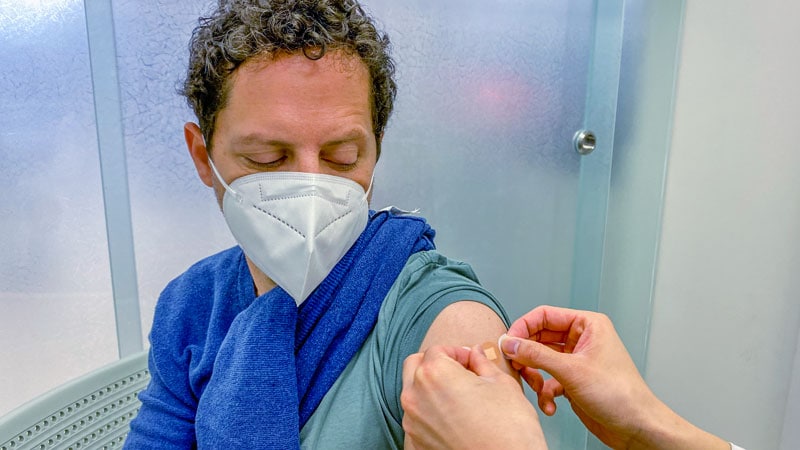Editor’s note: Find the latest COVID-19 news and guidance in Medscape’s Coronavirus Resource Center.
Parents who keep up to date with their COVID-19 vaccines may help protect their unvaccinated children from the disease in the process, new research shows.
Having one fully vaccinated parent reduced the risk for infection with the original strain of SARS-CoV-2 in children by 26%, while having two fully vaccinated parents cut the risk by nearly 72%, according to the researchers. Against the Delta strain of the virus, having one fully vaccinated parent — including a booster dose — was associated with a 20.8% decreased risk for infection in children, while having two fully vaccinated parents was associated with a 58.1% decreased risk.
“Vaccination not only provides direct protection, it also provides indirect protection to unvaccinated individuals living with the vaccinated individuals in the same household,” said coauthor Samah Hayek, DrPH, an epidemiologist with Clalit Research Institute in Ramat Gan, Israel, in a statement. “This study highlights the indirect protection provided by vaccinated parents to their unvaccinated children, irrespective of household size or the child’s age, for both the Alpha and the Delta variants.”
Hayek’s group published their findings online January 27 in Science.
The investigators focused on households that had two parents, unvaccinated children, and no prior infection during two periods of the pandemic: between January 17, 2021, and March 28, 2021, amid the Alpha variant wave of the pandemic; and between July 11, 2021, and September 30, 2021, when the Delta variant dominated.
All vaccinated parents in the study received at least two doses of the BNT162b2 [Pfizer] mRNA vaccine.
Vaccinated parents were less likely to have a documented infection. But they also were less likely to transmit the infection to a family member if they were infected, the study showed.
For the first period, the researchers had data from 400,733 unvaccinated children and adolescents in 155,305 distinct households. For the second period, they analyzed data from 181,307 unvaccinated children from 76,621 distinct households.
The results were generally consistent regardless of household size and across different age groups of children, including those too young to be eligible to receive COVID-19 vaccines, according to the researchers.
The study did not assess the effectiveness of the vaccine against the Omicron strain of the virus.
The dynamics of Omicron likely differ, said Yi Du, MPH, MS, a researcher at University of Nebraska Medical Center, Omaha, who has tracked the effectiveness of vaccinations there.
Amid Omicron, although cases increased, “we still observed the vaccine effectiveness in reducing hospitalization and mortality,” Du told Medscape Medical News.
Vaccinated parents and grandparents may be asymptomatic if they are infected, while unvaccinated children could remain at risk.
Waning immunity for vaccinated parents is another concern. “Boosters are highly recommended,” he said.
Science. Published online January 27, 2022. Full text
The research was funded in part by the Ivan and Francesca Berkowitz Family Living Laboratory Collaboration at Harvard Medical School and Clalit Research Institute. Study authors disclosed institutional grants to Clalit Research Institute from Pfizer outside the submitted work and unrelated to COVID-19. One author reported grants from Pfizer and financial or unpaid advisory ties to other pharmaceutical companies, foundations, and government agencies. Du had no relevant disclosures.
For more news, follow Medscape on Facebook, Twitter, Instagram, YouTube, and LinkedIn.
